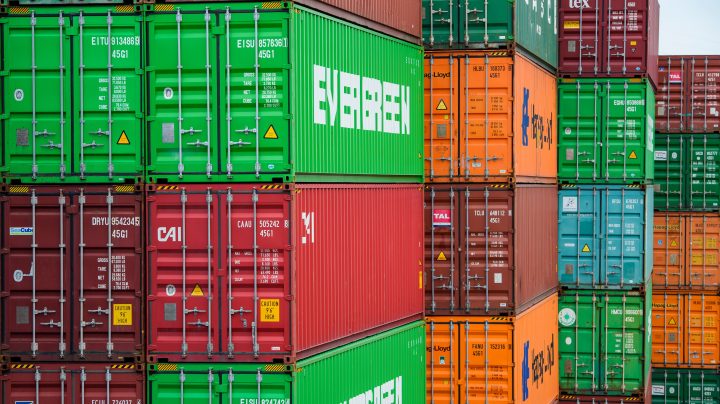
New trade data shows weakening demand

Our international balance of trade — the difference between the value of imports to the U.S. and exports from the U.S. — gets tallied up every month by the Bureau of Economic Analysis.
In November, the U.S. trade deficit, which reflects the fact that we import more than we export, shrank by a pretty hefty 21%. So, in one sense, that sounds good because we sent less money to foreign countries to buy imported stuff. But what’s really going on is a slowdown in both import and export trade, as growth falters here and abroad.
A lot has been going on lately on the trade balance sheet. The value of the U.S. dollar has been falling, making our exports a little cheaper. Global oil prices have declined, lowering the cost of imported fuel. China’s COVID outbreak means it’s exporting fewer phones.
“This data can be at times confusing because there’s both an import and an export component,” said Eric Freedman at U.S. Bank. “One of the things I think is a commonality across both imports and exports is a weakening of new orders.”
Imports fell a lot more than exports, indicating a rapid slowdown in U.S. consumer demand, said Sam Stovall at CFRA Research.
“U.S. consumers wishing to purchase less because interest rates are higher, concerns about their jobs are rising, being reminded of the prospect of a recession on a daily basis — so we could be seeing a lot of the U.S. consumers say, ‘You know what? Maybe I’ll hold off on discretionary items,’” he said.
Flagging demand has already dragged U.S. manufacturing into contraction, per Dan North at Allianz Trade. The company provides credit insurance to manufacturers and distributors — to cover losses when they ship goods to customers but don’t get paid.
“We get past-due information about who’s paying late, for how long and so forth,” North said. “Our clients are seeing a drop-off in demand, driving an increase in that past-due number.”
Another sign, he added, that things in this economy are slowing down.
There’s a lot happening in the world. Through it all, Marketplace is here for you.
You rely on Marketplace to break down the world’s events and tell you how it affects you in a fact-based, approachable way. We rely on your financial support to keep making that possible.
Your donation today powers the independent journalism that you rely on. For just $5/month, you can help sustain Marketplace so we can keep reporting on the things that matter to you.

















